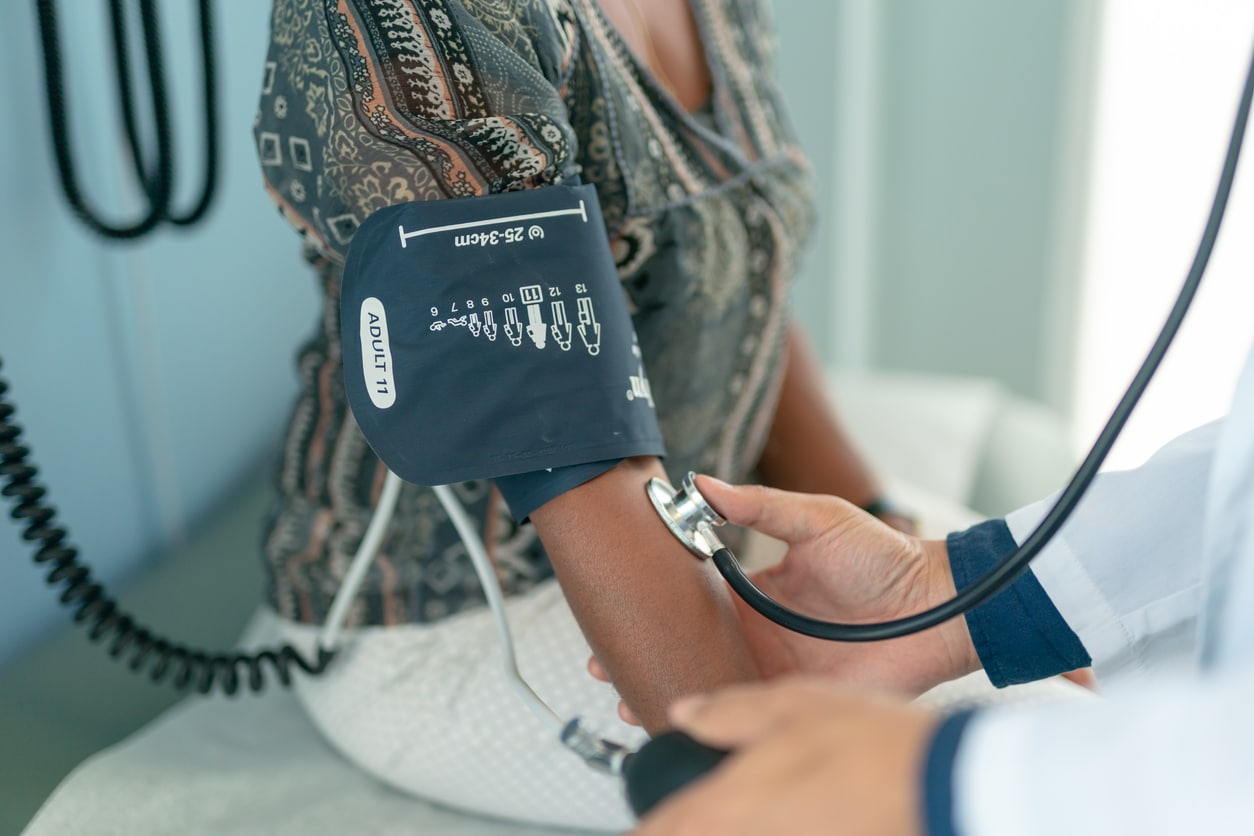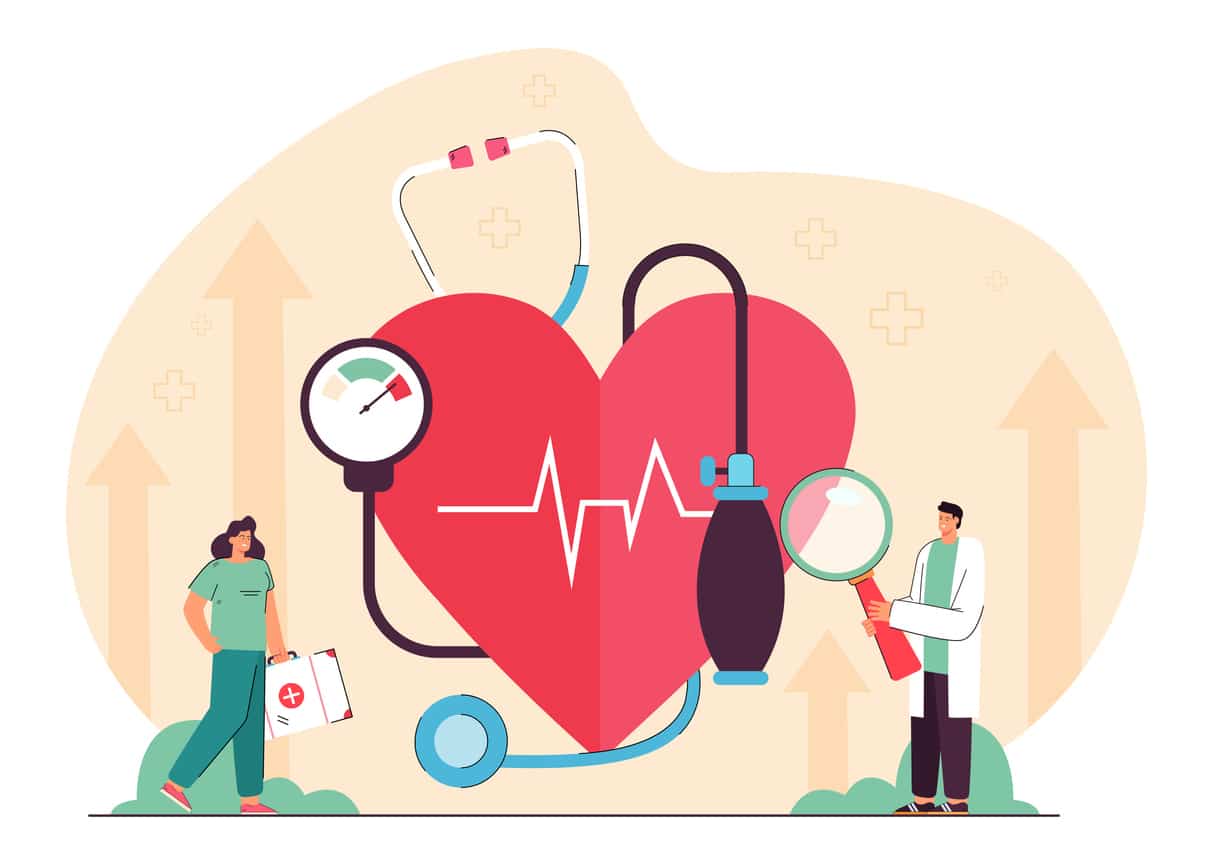Hypertension Treatment
Do you or someone you know suffer from hypertension? If so, it is important to take the necessary steps for proper diagnosis and treatment. At Cameron Hospital, we are committed to providing comprehensive cardiology services for those diagnosed with hypertension. With our team of board-certified experts in cardiology offering advanced technologies and approaches tailored specifically to hypertensive patients, Cameron Hospital is the best place to start your journey toward improved health.
What is Hypertension?
Hypertension, or high blood pressure, is a condition where the force of the blood pushing against the walls of the arteries is consistently too high. This can cause damage to the blood vessels and organs over time, increasing the risk of heart disease, stroke, and other health complications. While there is no cure for hypertension, it can often be managed through lifestyle changes such as maintaining a healthy weight, exercising regularly, reducing salt intake, and avoiding smoking and excessive alcohol consumption. Medications may also be prescribed to help control blood pressure levels. It is important to regularly monitor blood pressure and work with a healthcare provider to manage hypertension and reduce the risk of related health issues.
Two Types of Hypertension
There are two types of hypertension: primary and secondary. Primary hypertension, also known as essential hypertension, is the most common type and has no identifiable cause. It often develops gradually over time and is associated with factors such as genetics, smoking, lack of physical activity, and a diet high in sodium.
On the other hand, secondary hypertension is caused by an underlying medical condition such as kidney disease, thyroid problems, or sleep apnea. Unlike primary hypertension, secondary hypertension can often be resolved by treating the underlying condition. Regardless of the type, hypertension is a serious condition that requires medical attention to manage and reduce the risk of complications such as heart disease and stroke.
Clinical Signs and Symptoms of Hypertension
The clinical signs and symptoms of hypertension can vary depending on the severity and duration of the condition. In the early stages, there may be no apparent signs or symptoms, and a person may have hypertension for years without even realizing it. As the condition progresses, some individuals may experience headaches, dizziness, and nosebleeds.
Other common symptoms include:
- Shortness of breath
- Chest pain
- Irregular heartbeats.
Regular blood pressure checks are essential for those at risk of hypertension, as early detection and management can significantly reduce the risk of complications such as heart attack, stroke, and kidney disease.


How Do Doctors Diagnose Hypertension?
Hypertension, also known as high blood pressure, affects millions of people worldwide. Doctors use several methods to diagnose hypertension accurately. Typically, a doctor will start by taking a patient’s blood pressure manually. The doctor will then ask the patient to come back on several different occasions to check his or her blood pressure at different times and under different conditions. This process helps the doctor gather more accurate data, which can then be used to diagnose hypertension or other related health problems. The doctor may also request that the patient keep a blood pressure log at home. Taking your blood pressure at different times of the day and writing it down can be helpful to share with your doctor.
In some instances, the doctor may request more testing, such as an electrocardiogram (EKG), to further evaluate the condition. By using a combination of manual readings, consistent monitoring, and additional testing if necessary, doctors can diagnose hypertension with a high degree of accuracy.
Hypertension Treatment Options
For those who have been diagnosed with hypertension, it’s important to understand that there are multiple treatment options available. Medications such as diuretics, beta-blockers, and ACE inhibitors can effectively lower blood pressure, but lifestyle changes like maintaining a healthy weight, reducing sodium intake, and exercising regularly are equally important. Additionally, stress reduction techniques like yoga and meditation have been shown to decrease blood pressure in some individuals. It’s important to work closely with a healthcare professional to find the right combination of medications and lifestyle modifications to effectively manage hypertension. By taking an organized approach to treatment, individuals with hypertension can improve their overall health and reduce their risk of serious complications.
When to See a Cardiologist for Hypertension
If you have been diagnosed with hypertension, it is important to see a cardiologist for further evaluation and management. Cardiologists specialize in heart health and are equipped to provide comprehensive care for those with hypertension. This can include lifestyle advice, medication management, and additional tests such as echocardiograms or stress tests. Additionally, seeing a cardiologist can help identify any underlying conditions such as coronary artery disease, which may be contributing to hypertension. Regular follow-ups with a cardiologist are recommended for those living with hypertension, as this helps ensure that blood pressure is well controlled and any potential complications are monitored closely.
Schedule a Cardiology Appointment at Cameron Hospital
When it comes to taking care of your heart health, it’s important to have a plan in place. At Cameron Hospital, scheduling a cardiology appointment couldn’t be easier. With a simple phone call, our friendly staff will help you find the best time and date for your appointment. Our cardiologist will provide a comprehensive evaluation of your heart health, and work with you to develop a personalized treatment plan. Don’t wait to take control of your heart health – schedule your appointment at Cameron Hospital today. Contact us today at 260-665-2141 or 800-942-9583 for more information about our cardiology services.

©2025 Cameron Memorial Community Hospital
416 E. Maumee Street, Angola, IN 46703
